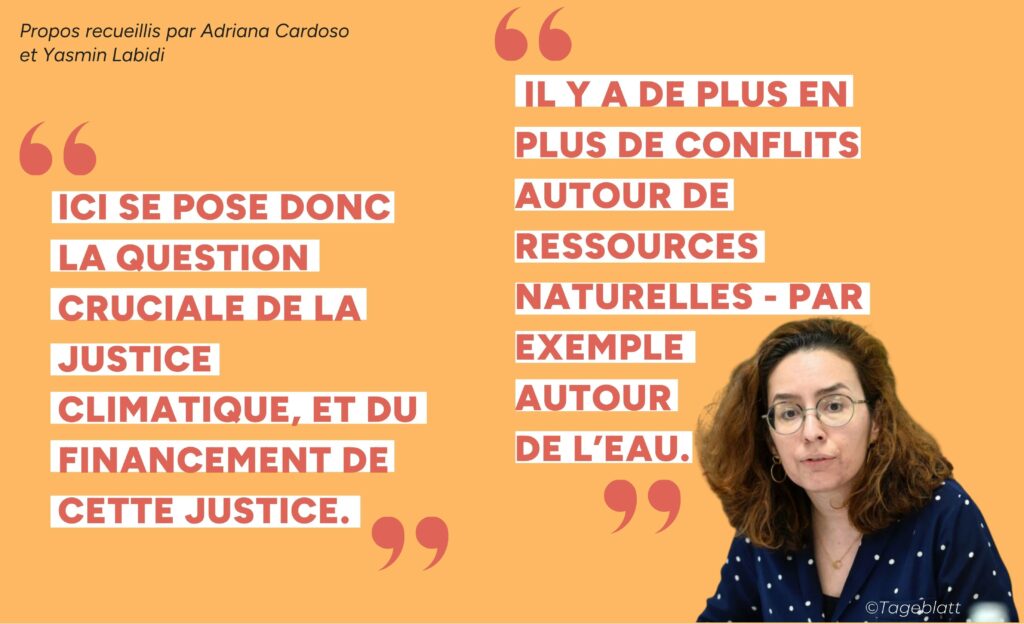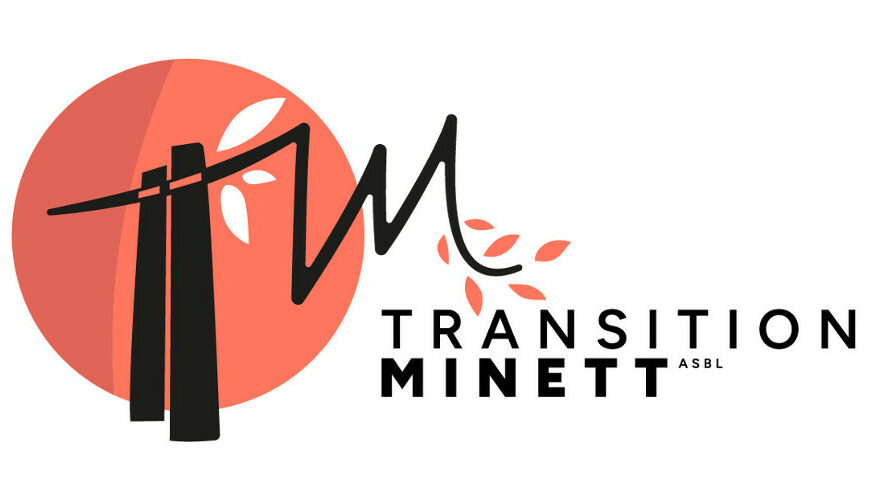
Interview by Adriana Cardoso and Yasmin Labidi
Thousands of climate displaced people in Belgium, Germany and France in 2021 and 2022 ; yes, climate change is also a concern here.
Luxembourg is one of the richest countries in the world; it is also proportionally one of the biggest emitters of CO2 emissions, and therefore responsible for climate climate.
In the context of December 10th (International Human Rights Day), we spoke to Antoniya Argirova (climate justice campaigner at Greenpeace Luxembourg) about climate change and its impact on human rights, with a focus on Internally Displaced People*- IDPs.
Transition Minett : What human rights are affected by climate change ?
Antoniya Argirova : Climate change has wide consequences, touching economic, social and cultural rights, as well as civil and political rights. To illustrate this, we can mention, for example, the complaint launched before the European Court of Human Rights (ECHR) by six young Portuguese citizens following the intense forest fires in Portugal in 2017, which forced residents to flee. The young citizens are suing 33 countries for climate change inaction. Climate change is having a serious impact on people’s lives – young people unable to continue their studies, people endangered, losing their homes, their land, their health deteriorating…
Climate change is also a catalyst for armed conflict. There are more and more conflicts over natural resources – water, for example. This raises the question of the protection of civilians.
Transition Minett : What is the impact of climate change on migratory flows ?
The Internal Displacement Monitoring Centre (IDMC) is an organization that takes an annual census of the number of people displaced by armed conflict and/or climate change. In 2021, there were 32 million people displaced by climate-related disasters worldwide.
It should be noted that the countries most affected by natural disasters are developing countries or those of the Global South – and at the same time, these are the countries least responsible for climate disruption (7 out of 10 of the worst-affected countries were island nations). This raises the crucial question of climate justice, and how to finance it.
Transition Minett : And in Europe ? Can we talk about of climate internally displaced people ?
Yes, we’re talking about IDPs in Europe. We have the figures: in 2021, following the floods, there were 16,000 internally displaced people in Germany and 16,000 in Belgium. In 2022, in France, there were 45,000.
…
Read the rest of the article on our blog!
More recently, flooding in Greece and southern Europe has also had serious consequences. Before much longer, coastal countries will also be affected by rising sea levels.
Transition Minett : Does Greenpeace have specific actions on the subject
Greenpeace International is increasingly active in the field of climate justice, directly or indirectly, supporting private individuals or associations who file lawsuits (for example, by providing legal advice or mobilizing its legal experts). Legal action is one way of influencing future climate policies. Unfortunately, governments are not respecting the commitments announced at the Paris Agreement. That’s why citizens are taking legal action, because today it’s the only way to hold governments accountable for their commitments.
A good example of this is provided by the Elders for Climate Protection Switzerland (https://ainees-climat.ch/), who have also brought a case before the European Court of Human Rights to hold the Swiss state accountable for its climate inaction. The decisions of the two cases before the Court (Portugal and Switzerland) will be handed down in 2024, and will have consequences, since if the decision is positive, it will create legal precedent that will also concern Luxembourg.
Greenpeace is keeping a close eye on these cases, and in the event of a positive decision will follow up to ensure that governments change their policies.
Transition Minett : Could you talk about the COP 28 and what is at stake?
Greenpeace International will be present at COP 28 (November 30th to December 12th). One of the main questions is : how to finance losses and damage in the territories that will be most affected by climate change, and in areas that will be made uninhabitable? How can we help those who will have to leave? The countries responsible should help people to settle elsewhere. But that’s the big question: how are we going to finance these actions?
In our view, the countries with the greatest historical responsibility (i.e. those who have emitted the most CO2) should contribute the most. The companies with the highest emissions also need to pay their fair share, bearing in mind that in recent years, these companies have made record profits: in 2022, for example, Total made 20 billion euros, Shell 40 billion dollars, the biggest profits in their history. Greenpeace believes that part of this profit should go to support the response to the climate emergency, for example by helping the climate IDPs.
More and more citizens are taking legal action against companies for the pollution they cause and the consequences on human rights, human health and the environment. More and more of these complaints are succeeding. There were 17 new lawsuits in 2022 against multinationals linked to climate disruption, brought by civil society organizations or private individuals (polluter-pays principle cases). These cases aim to obtain losses and damages for the consequences experienced, and confirm the importance of the issue of climate justice.
*Climate Internally Displaced People (IDPs): people forced to move within their own country as a result of natural disasters/environmental changes linked to climate disruption. A climate refugee moves outside his or her country for the same reasons.
